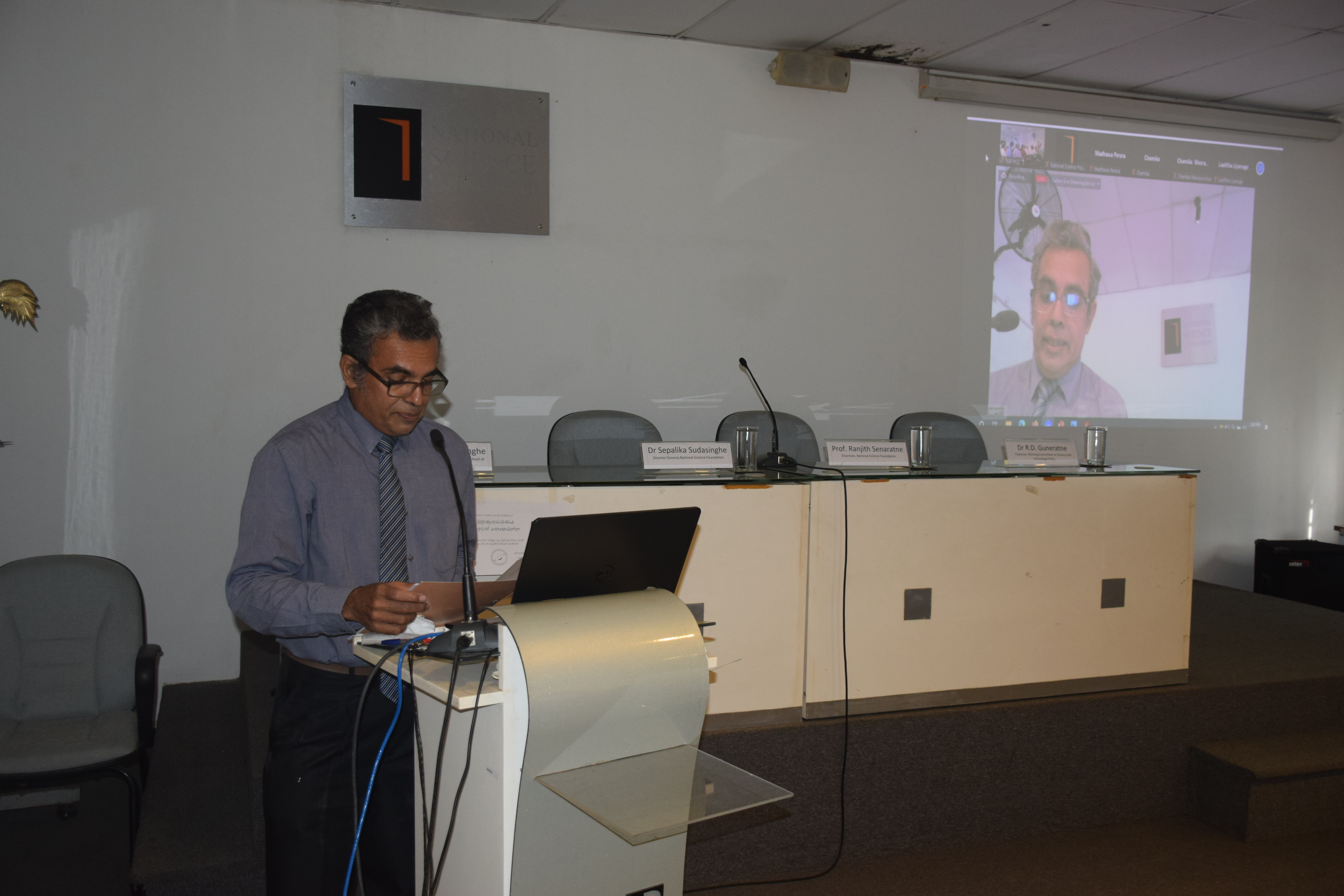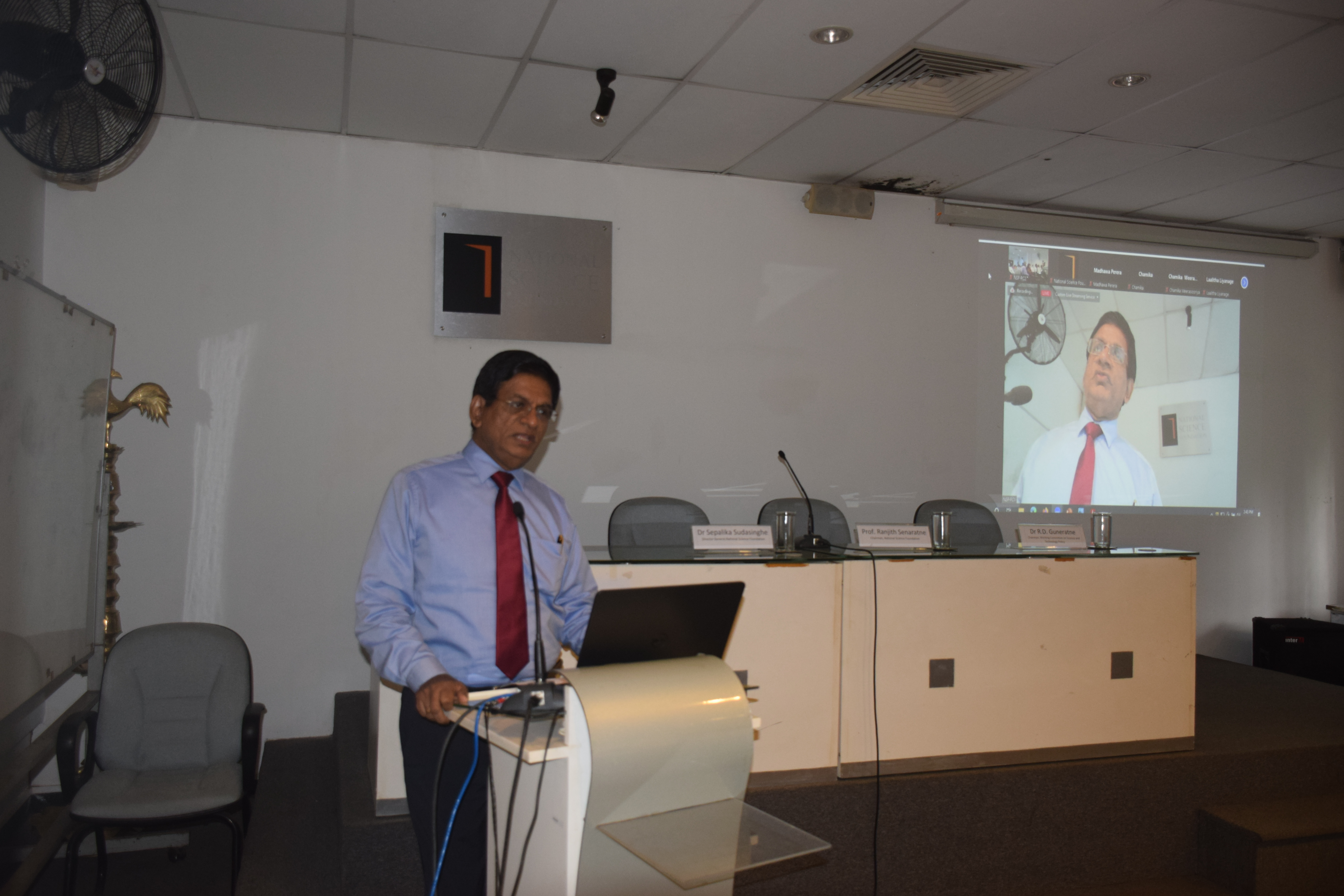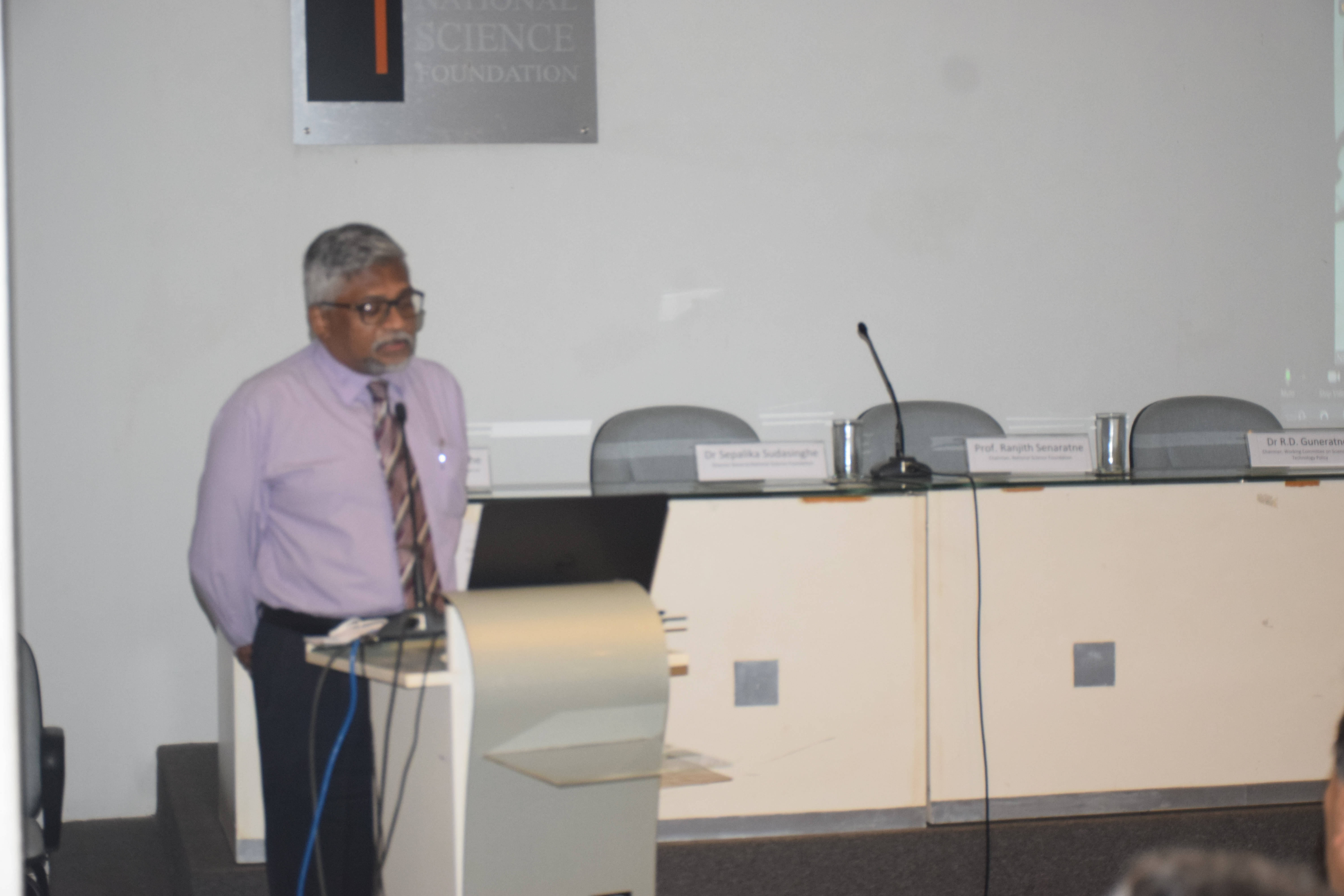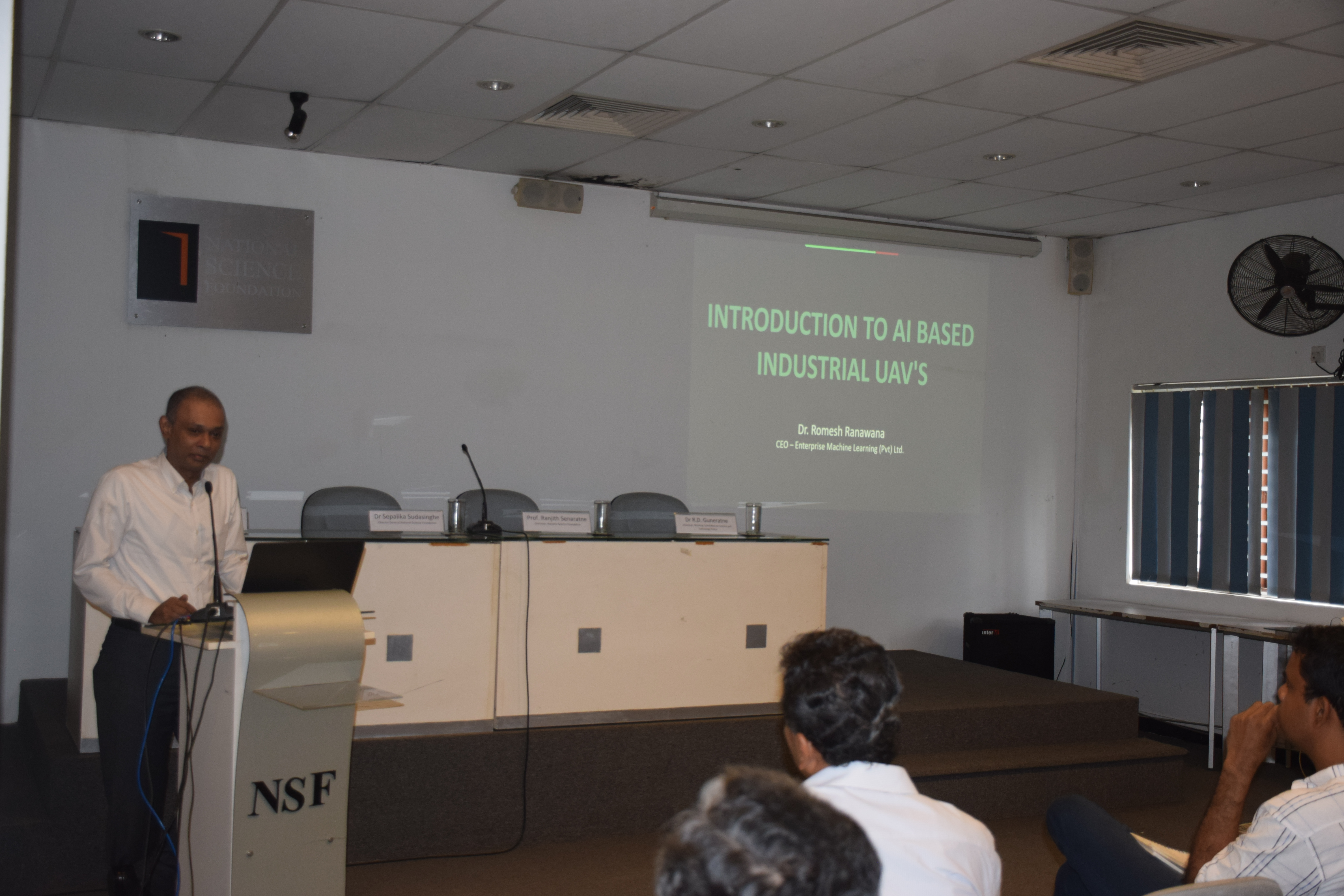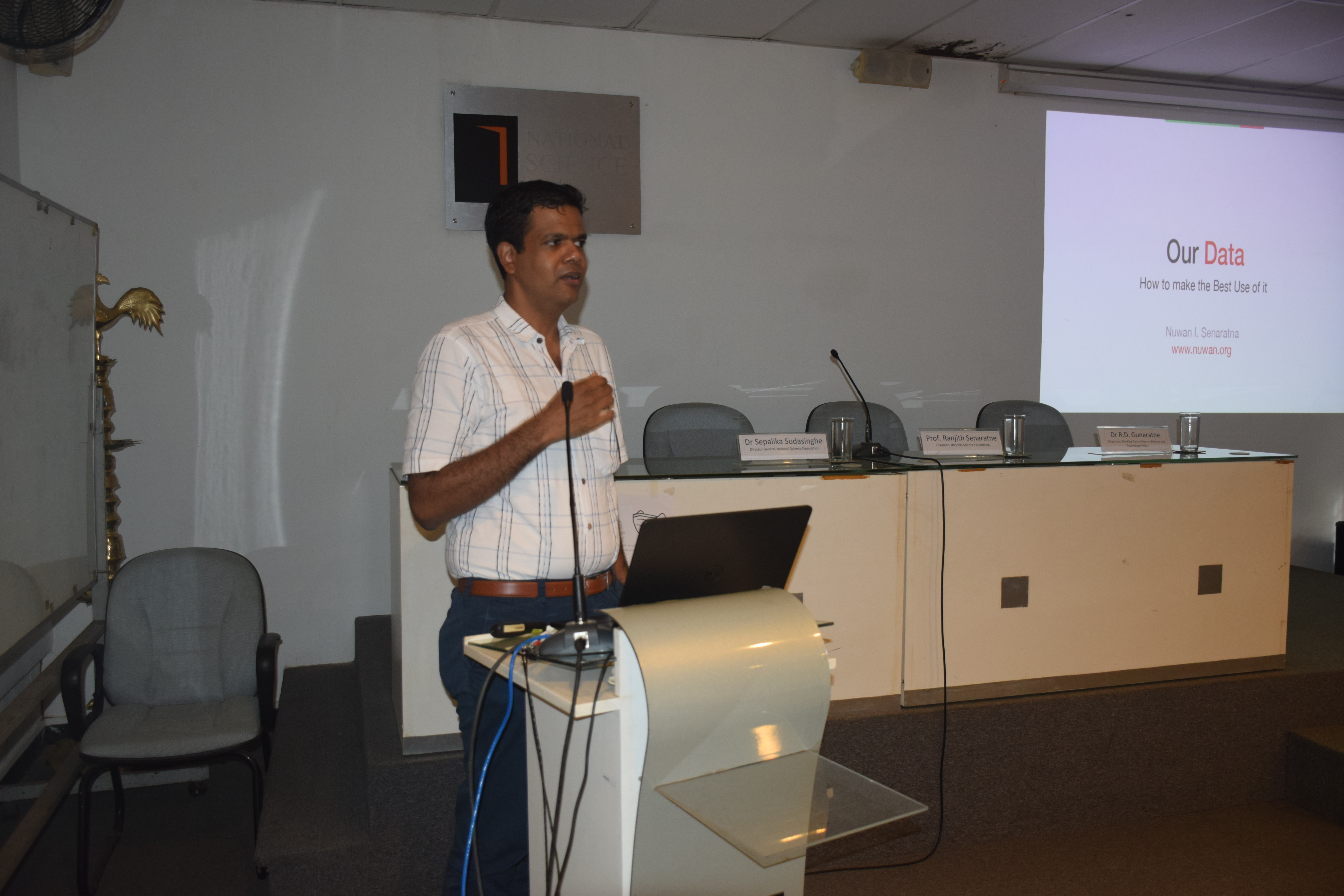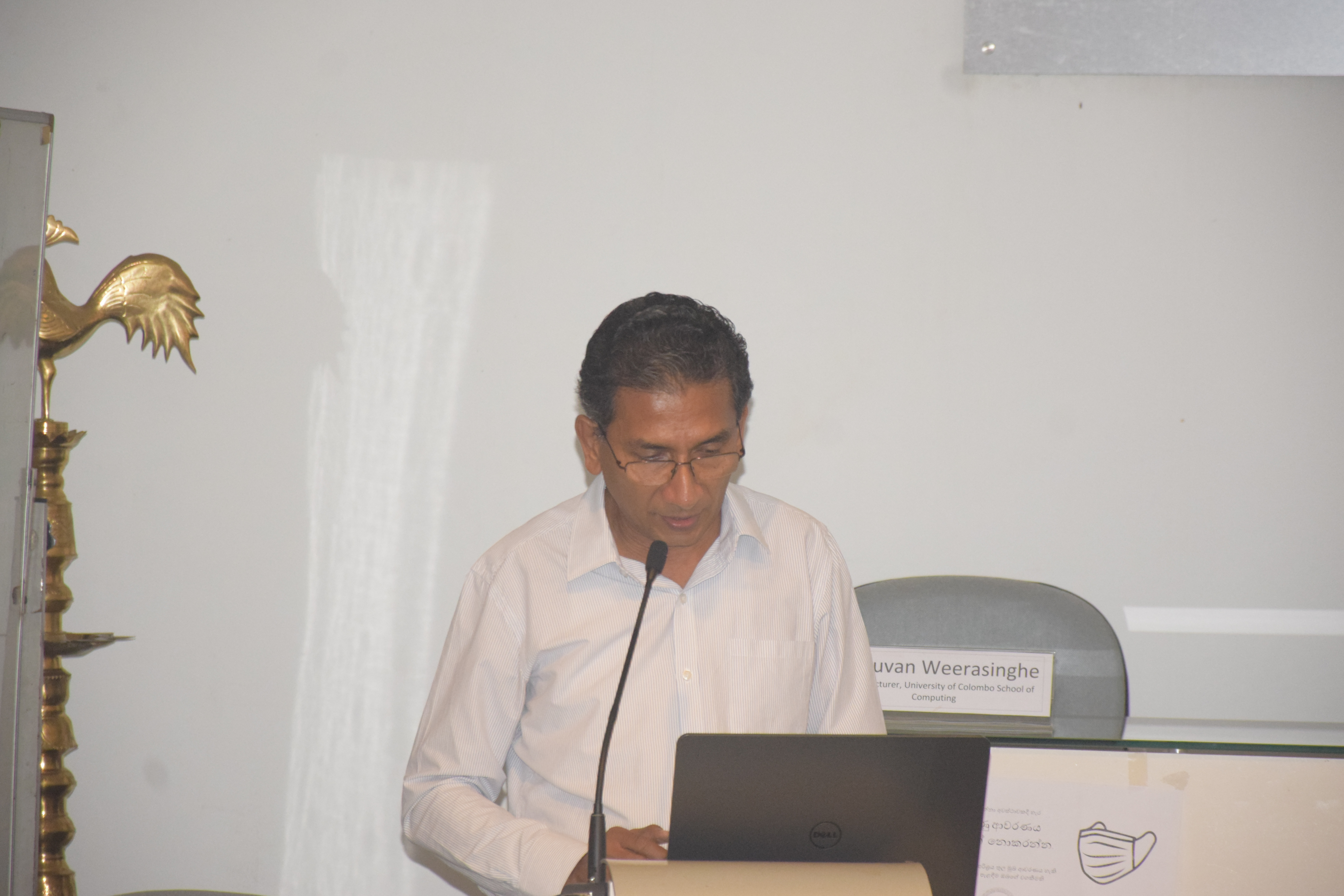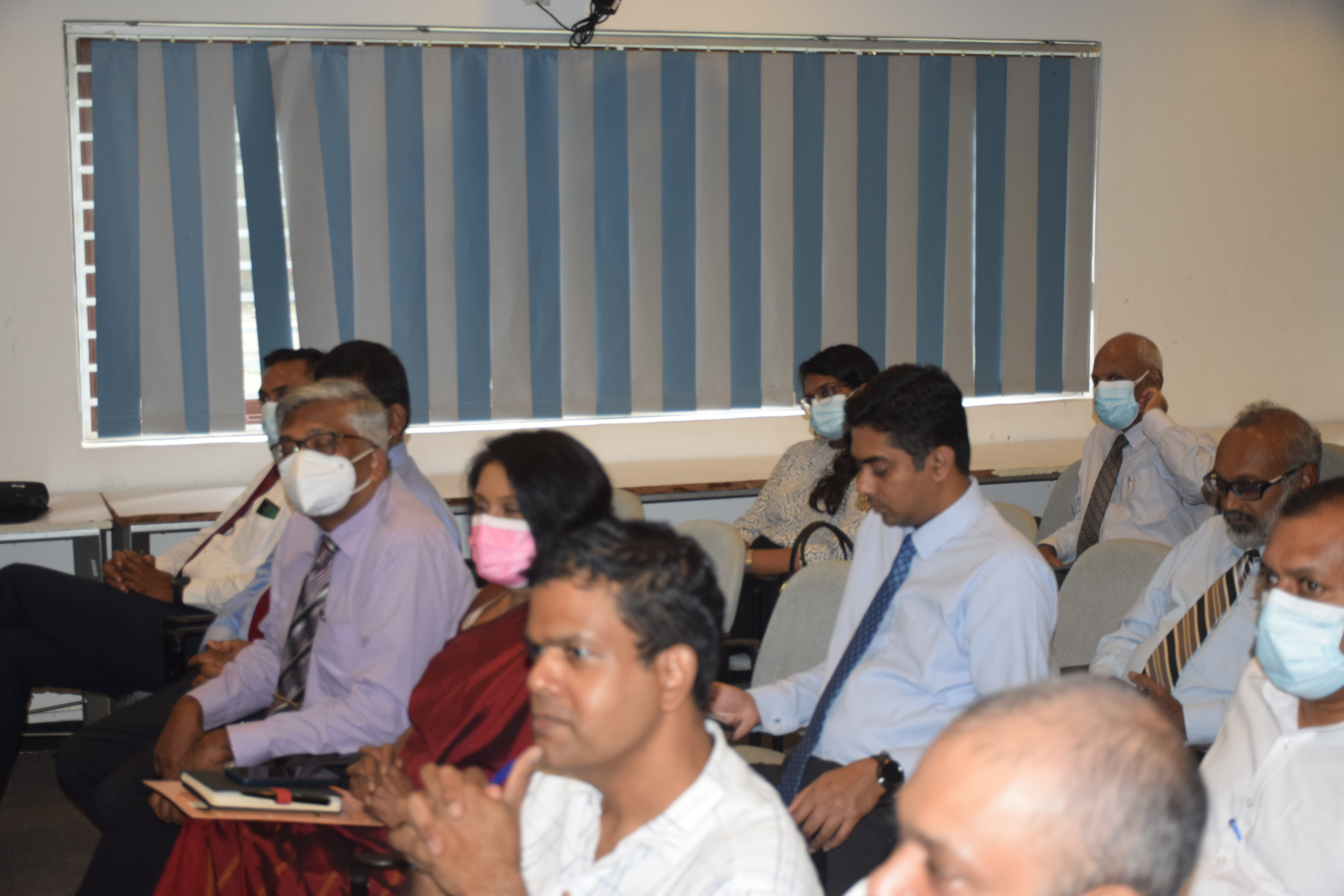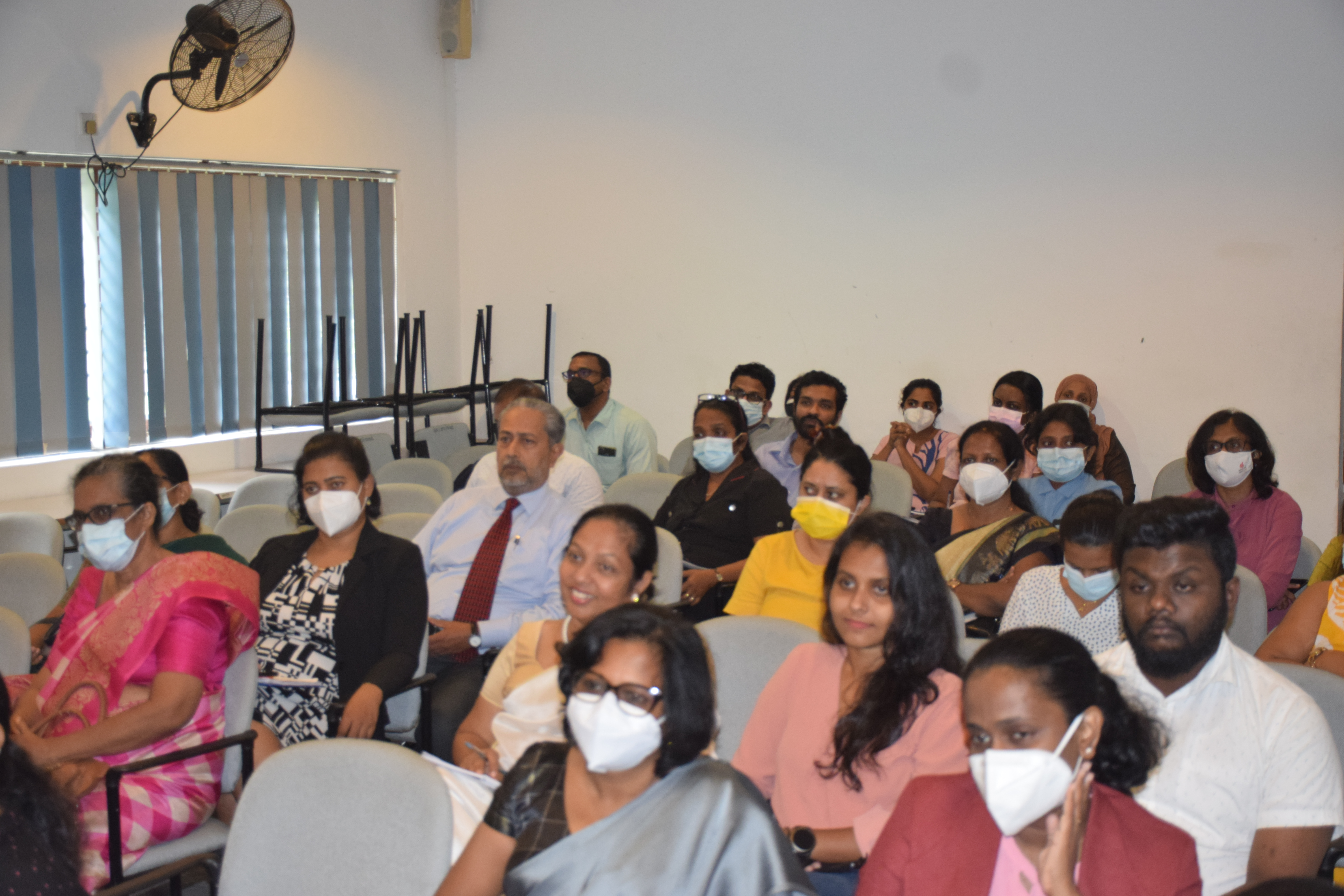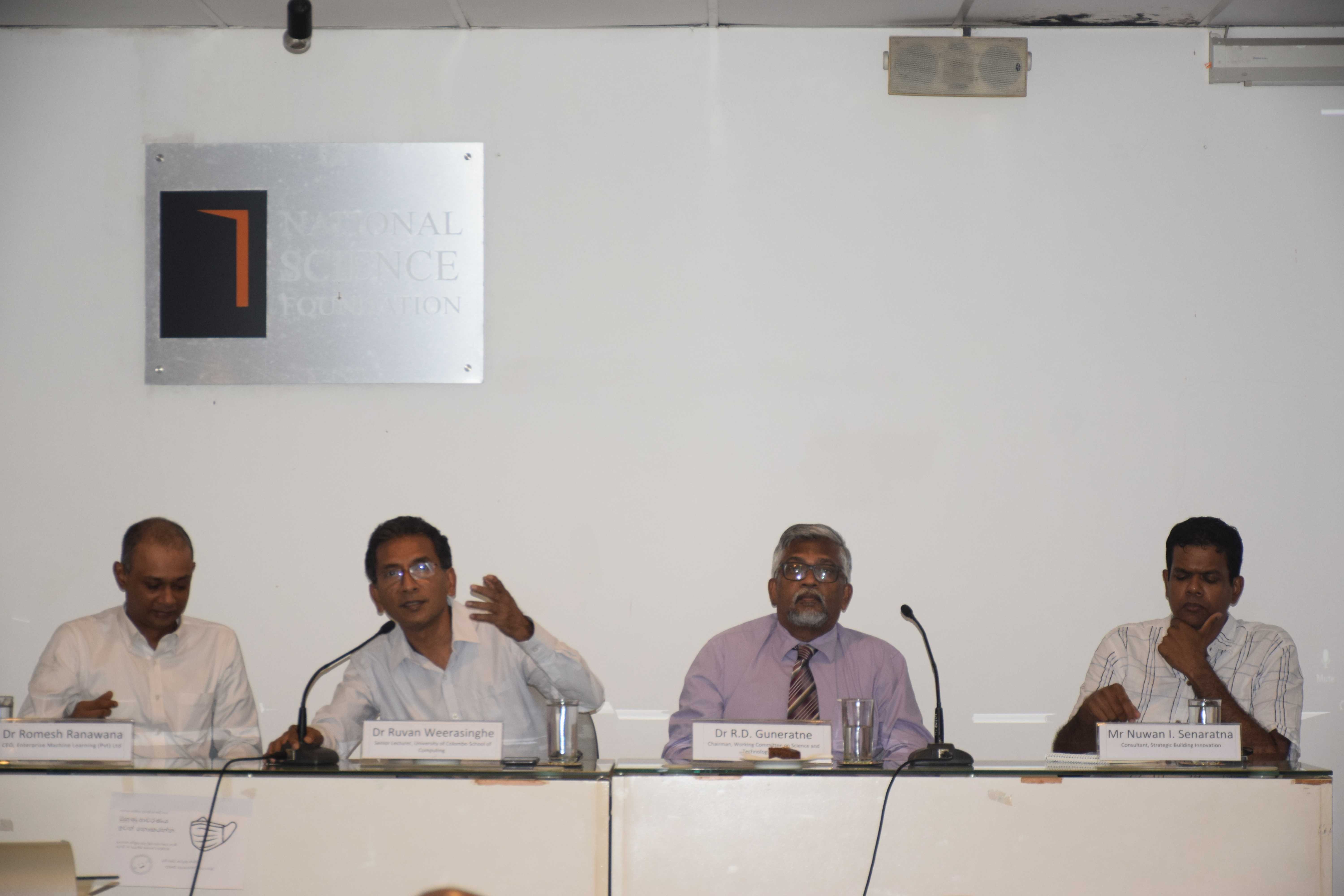
The National Science foundation organized a workshop on “Current status and future trends of application of technologies related to the Fourth Industrial Revolution in Sri Lanka” on Monday, 14th November 2022 in the NSF Auditorium. One of the main effects of the Fourth Industrial Revolution is increased human productivity. With technologies like AI and automation augmenting our professional lives, we're able to make smart choices, faster than ever before. Therefore, it was important to share the practitioners’ experiences with other relevant stakeholders in the field.
Emeritus Professor Ranjith Senaratne, Chairman of the NSF, welcomed the resource persons and the participants giving impetus to the programme. Dr R.D. Guneratne, Chairman of the Working Committee on Science and Technology Policy Research gave a brief introduction to the workshop. A few interesting lectures were delivered subsequently. A lecture on “AI and robotics: an application to unmanned aerial vehicles” was made by Dr Romesh Ranawana, CEO/Enterprise Machine Learning (Pvt) Ltd. Mr Nuwan I. Senaratna, an independent consultant made a presentation on “Our data resource: how to make the best use of it”. Dr Ruvan Weerasinghe, Senior Lecturer/University of Colombo School of Computing delivered a lecture on “Implications of large language models in ethical aspects of AI” and moderated the entire discussion successively. Concluding the proceedings, Dr Guneratne presented the way forward. Vote of Thanks was proposed by Mr Wasantha Anuruddha, Head/Science and Technology Policy Research Division of the NSF.

